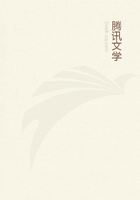
第70章 BEFORE THE TRIAL.LENT,(2)
"A woman,calling herself the Maid,leaving the dress and habit of her sex against the divine law,a thing abominable to God,clothed and armed in the habit and condition of a man,has done cruel deeds of homicide,and as is said has made the simple people believe,in order to abuse and lead them astray,that she was sent by God,and had knowledge of His divine secrets;along with several other doctrines (/dogmatisations/),very dangerous,prejudicial,and scandalous to our holy Catholic faith,in pursuing which abuses,and exercising hostility against us and our people,she has been taken in arms,before Compiègne,and brought as a prisoner before us."According to French law the indictment ought to have been founded upon a preliminary examination into the previous life of the accused,which,as it does not appear in the formal accusations,it was supposed had never been made.Recent researches,however,have proved that it was made,but was not of a nature to strengthen or justify any accusation.All that the examiners could discover was that Jeanne d'Arc was a good and honest maid who left a spotless reputation behind her in her native village,and that not a suspicion of /dogmatisations/,nor worship of fairies,nor any other unseemly thing was associated with her name.Other things less favourable,we are told,were reported of her:the statement,for instance,made in apparent good faith by Monstrelet the Burgundian chronicler,that she had been for some time a servant in an /auberge/,and there had learned to ride,and to consort with men--a statement totally without foundation,which was scarcely referred to in the trial.
The skill of M.Quicherat discovered the substance of those inquiries among the many secondary papers,but they were not made use of in the formal proceedings.This also we are told,though contrary to the habit of French law,was justified by the methods of the Inquisition,which were followed throughout the trial.One breach of law and justice,however,is permitted by no code.It is expressly forbidden by French,and even by inquisitorial law,that a prisoner should be tried by his enemies--that is by judges avowedly hostile to him:an initial difficulty which it would have been impossible to get over and which had therefore to be ignored.One brave and honest man,Nicolas de Houppeville,had the courage to make this observation in one of the earliest sittings of the assembly:
"Neither the Bishop of Beauvais"(he said)"nor the other members of the tribunal ought to be judges in the matter;and it did not seem to him a good mode of procedure that those who were of the opposite party to the accused should be her judges--considering also that she had been examined already by the clergy of Poitiers,and by the Archbishop of Rheims,who was the metropolitan of the said Bishop of Beauvais."Nicolas de Houppeville was a lawyer and had a right to be heard on such a point;but the reply of the judges was to throw him into prison,not without threats on the part of the civil authorities to carry the point further by throwing him into the Seine.This was the method by which every honest objection was silenced.That the examination at Poitiers,where the judges,as has been seen,were by no means too favourable to Jeanne,should never have been referred to by her present examiners,though there was no doubt it ought to have been one of the most important sources of the preliminary information --is also very remarkable.It was suggested indeed to Jeanne at a late period of the trial,that she might appeal to the Archbishop;but he was,as she well knew,one of her most cruel enemies.
Still more important was the breach of all justice apparent in the fact that she had no advocate,no counsel on her side,no one to speak to her and conduct her defence.It was suggested to her near the end of the proceedings that she might choose one of her judges to fill this office;but even if the proposal had been a genuine one or at all likely to be to her advantage,it was then too late to be of any use.
These particulars,we believe,were enough to invalidate any process in strict law;but the name of law seems ridiculous altogether as applied to this rambling and cruel cross-examination in which was neither sense nor decorum.The reader will understand that there were no witnesses either for or against her,the answers of the accused herself forming the entire evidence.